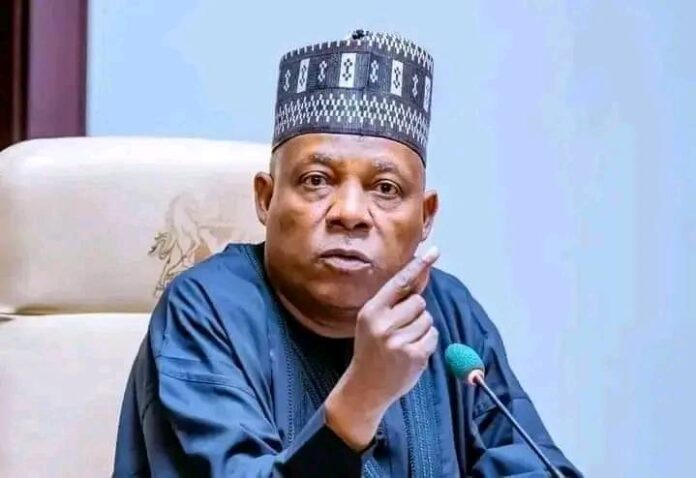Vice President Kashim Shettima on Thursday presided over the National Economic Council (NEC) meeting at the Presidential Villa in Abuja, as leaders from across Nigeria gathered to deliberate on pressing national economic issues, including food inflation, fiscal sustainability of states, and economic reforms.
The NEC meeting, which is held monthly, brings together state governors, key ministers, and heads of economic agencies to advise the President on economic affairs and coordinate policy across all tiers of government.
Thursday’s meeting was held against the backdrop of rising inflation, food insecurity, and growing concern over the fiscal health of some state governments, many of whom are grappling with revenue shortfalls and increasing debt profiles.
Addressing the Council, Vice President Shettima emphasized the urgency of aligning both federal and state strategies in tackling Nigeria’s economic challenges.
“We are gathered here today to take bold and collaborative steps toward stabilizing the economy, ensuring food security for our citizens, and strengthening fiscal responsibility at all levels of government,” Shettima said.
One of the major highlights of the meeting was a presentation by the Federal Ministry of Agriculture and Food Security, which outlined ongoing efforts to scale up food production through mechanized farming, fertilizer subsidies, and targeted support to farmers in high-yield regions.
The Minister of Budget and Economic Planning also gave a detailed briefing on the country’s economic outlook, highlighting the impacts of recent subsidy reforms, foreign exchange unification, and global commodity price fluctuations on Nigeria’s macroeconomic stability.
The NEC also reviewed the status of the Nigeria Startup Act implementation across states, with the Minister of Communications, Innovation and Digital Economy presenting updates on how digital innovation and tech entrepreneurship could become tools for job creation and economic diversification.
A significant portion of the meeting focused on the fiscal situation of states. The Accountant-General of the Federation presented a report on states’ revenue performance, debt service obligations, and disbursements from the Federation Account Allocation Committee (FAAC).
The Council discussed the need for improved Internally Generated Revenue (IGR) mechanisms, greater transparency in state-level spending, and reforms to enhance financial autonomy for local governments.
In a closed-door session, the Council also deliberated on strategies to address the rising cost of living and enhance social safety net programmes to protect vulnerable Nigerians. The Vice President directed relevant federal agencies to fast-track interventions and collaborate closely with state governments to roll out palliative measures.
The meeting further reviewed progress on the implementation of the Nigeria COVID-19 Action Recovery and Economic Stimulus (NG-CARES) programme, with several states reporting increased access to micro-grants, agricultural inputs, and basic services under the scheme.
Governors present at the meeting expressed support for a unified economic strategy and called for increased federal support in areas such as agriculture, security, power infrastructure, and education.
NEC resolved to reconvene next month with a focus on reviewing the outcomes of current economic initiatives and exploring new areas for partnership between the federal and state governments.
The meeting concluded with a renewed commitment by all stakeholders to work collectively towards achieving economic stability, reducing poverty, and fostering inclusive growth across Nigeria.










